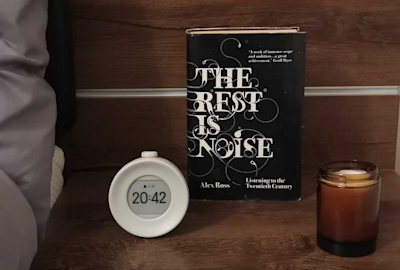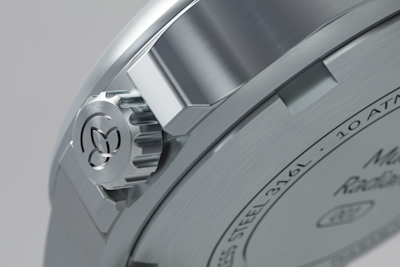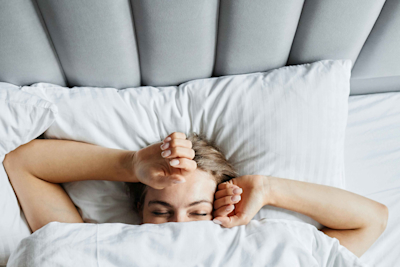
Reflections on Minimalism: Expectations vs. Reality
What exactly is minimalism?
Many people believe that in order to be a TRUE minimalist you must live with less than 100 items, you cannot own a car or even a TV, you cannot splurge on materialistic whims or own fancy items.
Does being a minimalist mean you can’t have an extensive book collection or own designer clothes?
In fact, minimalism is far from that. It’s not an extreme lifestyle, which requires you to give up all your possessions and live like a hermit.
Minimalism is all about living with less. It means choosing to get rid of everything that is unnecessary in favor of what is important. It does not mean you have to quit your job and live on a commune with other minimalists. It does not require you to sell your car, give up your books or that antique china set which you inherited from your great-grandmother. It’s not about deprivation. At its core, minimalism isn’t anything complicated. It's a very simple idea. It’s intentional simplicity. You can keep living where you’re living, you can keep your car (or don’t- it’s up to you) and that extensive book collection. And you can still buy things.
There’s nothing wrong with consumption. You just have to change the way you think about certain possessions.
Minimalism is about reducing your life down to the most essential aspects, and ignoring temptations toward anything else. This is the very foundation of minimalism. It’s a deliberate selection of the things we value most by eliminating anything that distracts us from it.
Consumer Culture
We live in a society which prides itself on the accumulation of possessions. Therefore, we spend our lives accumulating things. With every shopping trip, we buy things we don’t REALLY NEED. Sometimes, we even accumulate things we don’t particularly even want. These days, accumulating unnecessary stuff has never been easier. Just think, products are cheaper than ever, despite having to travel across the world to get to us. With the advent of the internet & digital technology, we are no longer limited by having to actually go to a physical store during limited hours. We no longer have to roam aimlessly through the aisles looking for a product, and then wait in long check-out lines. Then, waste time going back home. Now, with the click of a button, we have the option and freedom to shop for anything, anywhere, at any time. This means we often buy things without a second thought. A new sweater for your dog? Click! It’s done. How about a matching one for you? Boom! Mission accomplished! In a few days, you & Fido can be strolling down the street, in your matching outfits, like it’s a neighborhood catwalk (pun intended).
Every day can feel like Christmas, if you buy yourself stuff online. You not only get that dopamine hit when you buy something, you also get a dopamine rush when the item arrives and when you open it. This biological compulsion to shop and accumulate "things" is partly due to the way humans are wired. Also, now that we do so much of our shopping online, returning things has become more of a hassle.
What’s the last non-food item you bought online? How about in a physical store?
What was its purpose? Did you really need it? Or was it an impulsive purchase? And more importantly, did it REALLY make you happy? Is it adding value to your life right now?
Probably not.
So, what happened? Where is that item? Where did it go? Where do any of the items you bought online and never used go? A lot of it probably just became clutter in your home.
Do we think we're going to become happier by consuming more?
Could it be that our concept of happiness has shifted? Or is it more probable that these material items, we’ve accumulated over the years, are not really intended to make us happy? They are intended to fuel a never-ending cycle of social anxiety, followed by short-term satisfaction which leads to compulsive consumption, which again circles back to social anxiety. After a while, it’s evident that true happiness is never found at the bottom of a shopping bag.
Or perhaps our compulsion to hoard is a response to some sort of existential insecurity?
The evolutionary aspect
Throughout evolution, the people who had the most stuff were the ones who were most likely to survive. They gathered a lot of food for the winter and they gathered a great deal of wood to heat their shelters and cook their food.
So maybe, this innate desire to accumulate stuff is just an evolutionary instinct to survive. However, today, it’s no longer necessary to hoard possessions in order to stay alive.
So why do we continue down this terrible path? Deep down do we REALLY think money can buy happiness? Can we REALLY expect to find contentment in possessions?
In reality, possessions do not make us happy. Even worse, too often, they keep us from the very things that do bring happiness and purpose and fulfillment into our lives. To put it plainly, sometimes they may be the source of our problems.
More money, (more things) more problems?
What is it about our never-ending quest of accumulating more and more possessions that makes it so inherently harmful? Why is materialism associated with reduced well-being?[1]
Have you ever thought about it this way: The more things you have, the more attachments you have to inanimate objects (not humans). This can lead to more stress. Social interaction is key to overall health and longevity. It’s as simple as that. [2]
A lifestyle, focused on consumption, distracts people from personal growth and collective values such as family and friendships. Rather than spending time with your family and friends, you’re walled in by your possessions, because you either have to manage them or feel like you have to use them to get the perceived value out of them.
The more things we accumulate (cars, homes, clothes, electronic devices, knick knacks etc.) the more our lives are cluttered- cluttered with unnecessary responsibilities of taking care of/ cleaning/managing all those items. This, in turn, can overwhelm us, which then turns into stress, anxiety & burnout.
Having less stuff means spending less time managing these items, which means you have more time to spend with friends and family.
Have you ever bought something which you NEVER ended up using?
Why did you buy it? Was it a purpose-driven purchase? On an impulse buy?
Where is this item now? Has having this item affected your life in a positive or negative way?
Less “things” more time
There is more than joy that can be found in owning less. There is also the concept of time. This truth lies at the heart of minimalism.
On average, we tend to see 5,000 advertisements every day. Every single one of them tries to convince us that owning more will make us happy. Since we hear that message over and over, so many times,, from so many different angles,, we begin to believe it. As a result, we start spending our lives working long hours to make good money so that we can afford more and more stuff: bigger houses, nicer cars, trendier fashion, cooler toys, faster technology.
Life is short. Time goes by quickly. Once we use it up, we can’t get it back. Therefore, we need to make the most of our lives.. Possessions not only steal our time, but they also steal our energy. They require never-ending maintenance. They need to be cleaned, preserved, fixed, replaced, and finally removed. We often don’t even notice this fact… until it’s too late.
Bottom Line
Humans are unique creatures. We all differ in the way we look and talk. Our personalities are different. We have numerous talents to share with the world. Each one of us is one of a kind. Consequently, just because everyone else is chasing material possessions, it doesn’t mean you have to.
Our lives are so much more significant than possessions. Possessions don’t last. They perish, spoil, and fade. In addition to that, most of them are purposefully designed to last a very short time. Our hearts desire more than just possessions. Possessions are temporary.
Life is important. Experiencing life is important. We are so much more than our possessions. Let’s not sacrifice our vital role in this world by settling for material possessions which can be easily purchased without so much as a second thought.
Deep down, we know possessions don’t equal joy. We also know our life is far too valuable to waste chasing them.
If you’d like to read more about topics connected to this subject, please check out some of our other articles:
To learn more about Mudita, take a look at our and our blog.
Related stories

Mudita’s Community-Curated Wintertime Reading List
Slow down this winter with our community-curated reading list from the Mudita Forum Community, featuring books on well-being, focus, simplicity & mindful tech.

Sellita SW200-1 Elaboré is a Movement Built for Adventures
Discover why the Swiss Sellita SW200-1 Elaboré movement makes Mudita Radiant a durable, precise, and reliable field watch built for real-world adventures.

Why Sleep is the Foundation of Every Good Habit
Quality sleep is the foundation of every good habit. Discover how better rest helps you regain focus, energy, and routine after summer.
If you'd like to receive the best stories from our blog, keep up to date with our progress and get notified about our product releases and special discounts.